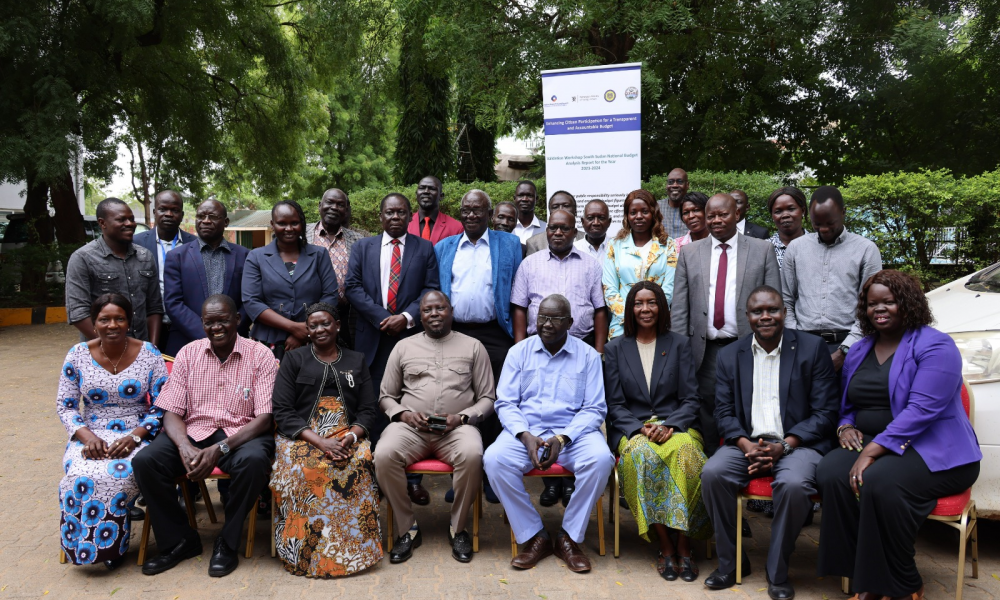By Charles K Mark
A coalition of civil society has urged the national government not to transfer money to states that have not presented budgets for the fiscal year.
In national budget validation workshop, last week, activists demanded that ministry of finance and planning should restrict remitting funds to state governments over lack of budget.
Institute of Social Policy and Research (ISPR) organised the workshop in partnership with national legislative assembly (R-NTLA) and the ministry of finance and planning.
Chief Executive Officer (CEO) of ISPR, Boboya James Edmond said that blocking money transfer to the states was a mechanism to enforce accountability.
“Currently, there are only two states that have developed their budgets, that’s Central and Eastern Equatoria States,” Boboya confirmed.
According to Boboya, activists recommended in the workshop that no money should be given to a particular state that fails to produce a fiscal year budget.
“It’s actually a disciplined matter, and it’s also for them to open their eyes and know that they should be able to do their work,” he stressed.
Boboya said the validation workshop was planned to generate debates in parliament on the national budget.
“The evidence will inform the members of Parliament, so, they can generate an understanding of how allocations made influence and impact development,” he added.
Boboya also cited a provision surrounding “mandatory commitments and payments” saying it generated a heated debate during the workshop.
The controversial provisions included the five (5) percent transfer, allocated to the oil-producing states and communities, three (3) percent to the Petroleum ministry, and ten (10) percent as National Revenue Authority deductions.
In disagreement, members wondered what the allocation was meant for, if, for example, the ministries had already allocated a specific budget for the operations, including salaries.
“Yes, we don’t want dubious allocations because, for example, the Ministry of Petroleum has already been allocated budgets for salaries and other activities.” Boboya boss stressed.
As about 11 percent of the national budget goes to loans and debt servicing, the civil society believes the government gone too far, borrowing too much for nothing.
Objection, the civil society noted that instead of investing the borrowed billions of dollars in agriculture, road networks, market systems, and perhaps hydroelectric power plants, it is vested in settling bills that never benefited the greater good.
“So, I think we need to really begin to think about what we can do in order to begin developing South Sudan from an investment perspective,” Boboya added.
A representative of the Institute of Public Leadership Action Network (I-Plan) South Sudan, Mr. Samuel Par said the government needed to prioritize budget allocation to critical areas, such as the forthcoming elections.
Mary Jarvis Yak, deputy chairperson of the finance and planning committee at the parliament, explained that though the discipline of any budget requires auditing at the close of the financial year, it is not the case in South Sudan.
According to Jarvis, South Sudan has never audited its national budget.
“Our budget system is addicted to having a deficit. They think it’s good. Because I remember when I once brought up this issue that let us budget according to what we have, they said no, we have never seen a budget without a deficit,” she said.
The national budget validation workshop was conducted under a theme: “Taking our public responsibility seriously in understanding and analyzing budget figures and percentages to inform future sector budget allocations, better achieve more transparent, more effective and efficient management of budget, and maximum value for money in delivering services to South Sudanese citizens.”




